HERE’S WHAT YOU DON’T KNOW: that desk may be making you sick. Because everything from furniture to cabinets to flooring is made of engineered wood, like particle board, that contains formaldehyde. (Yup, the same carcinogen used to preserve dead people.) It’s why the CDC recently linked Lumber Liquidator to cancer.
But what if there were a nontoxic way that to create these same products? A way also easy and cost effective? That’s what Eben Bayer set out to find. Bayer and the biomaterial company he co-founded, Ecovative, have developed a method of using mushrooms — yes, mushrooms — to replace the formaldehyde in engineered wood. It’s 100% natural and carcinogen free. Let’s dive deeper:
Ecovative's co-founder can grow anything out of mushrooms.
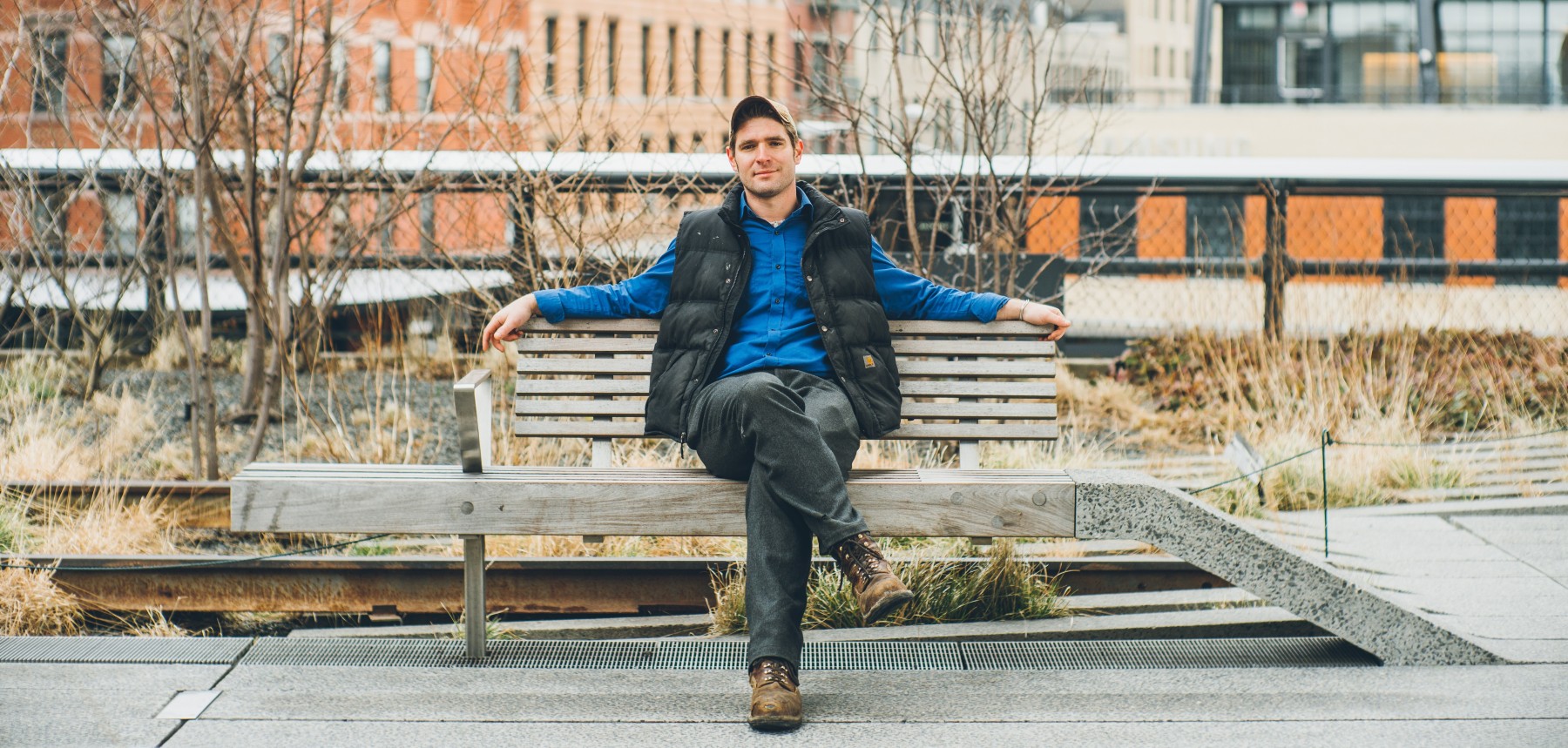
Engineered wood appears in many common products. And since we’re guessing you haven’t visited a wood processing plant in a while, we asked Bayer to explain why that’s bad:
“Imagine a production line with wood coming in,” he begins. “The wood is sent into chippers that chop it up and spit out millions of small pieces. Traditionally, a glue-like resin is then applied to bind those pieces into a smooth, flat board; that glue contains formaldehyde.”
The end product, let’s say a desk, releases emissions over time. Less serious side effects include wheezing, coughing and irritated eyes; more serious side effects include cancer.
“It’s scary, because these products are in such close proximity to consumers,” Bayer sighs. “There are carcinogens in our walls, in our chairs, in our desks.”
Unfortunately, current efforts to address the issue — like those in California — aim to do two things: either minimize the amount of toxins, or apply a lacquer to better seal them in. No one is trying to eliminate the toxins completely — that is, except for Ecovative.
The Issue: Consumer Products Contain Toxic, Engineered Wood
“There are toxins in our walls, in our chairs, in our desks.”
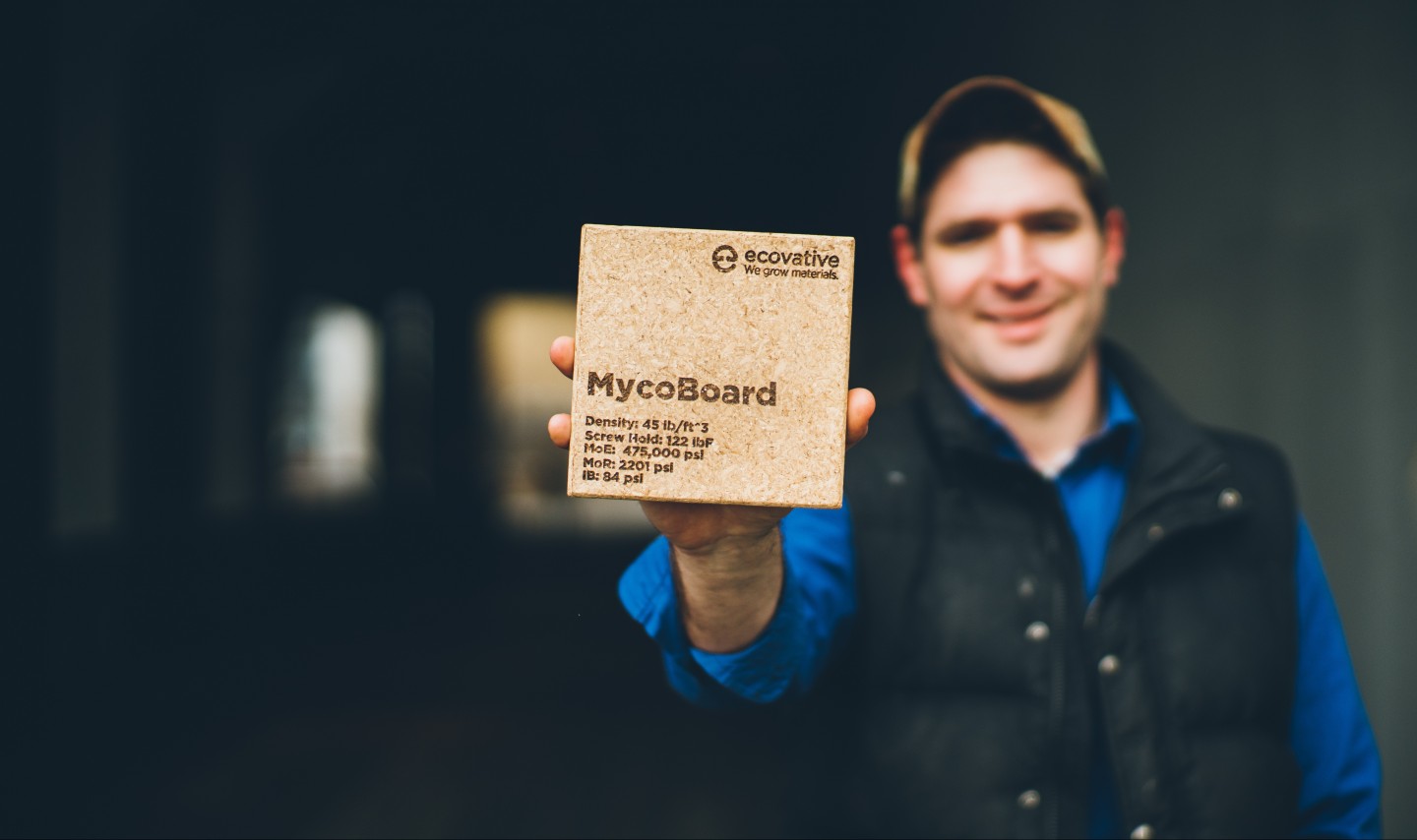
“Traditionally, a glue-like resin is then applied to bind those pieces into a smooth, flat board; that glue contains formaldehyde.”
Let’s go back to our imaginary factory. What if, instead of showering wood chips in glue, we shower them in mushroom roots. Stick with us:
“When people think of mushrooms, they think of food,” Bayer continues. “But that they’re edible is the least interesting thing about mushrooms; the coolest thing is their roots.”
When you see a mushroom in the forest, only 5% of the organism is visible. Nestled under the ground are its roots, growing deeper and deeper into the earth. And these roots, called mycelium, are made of filamentous strands that spawn quickly and stabilize the soil around them.
“We can harness that naturally-occurring process into our manufacturing,” Bayer asserts. “I don’t know when we decided humans could outsmart Mother Earth, but biology is almost always better.”
So, Ecovative replaced toxic glue with a liquid preparation of mycelium that grows through and around the wood chips, forming solid, durable particle board. MycoBoard takes only a few days to grow and is 100% nontoxic. And when you’re done with a product? Feel free to compost, leave it in the woods, whatever — this engineered wood decomposes naturally over time.
“The best part is it costs roughly the same,” Bayer continues. “Glue accounts for 30% of the cost in particle board production — around $10 per board. But a small amount of our mycelium culture will replicate itself to 10, 100, 1,000 times the original amount. Mushrooms beget more mushrooms, leaving manufacturers with an infinite amount of material.”
All manufacturers need is a small modification that enables their existing factory to process Ecovative’s mycelium preparation and, ta-da, toxin-free wood.
The Solution: Replace Toxins With Mushroom Roots
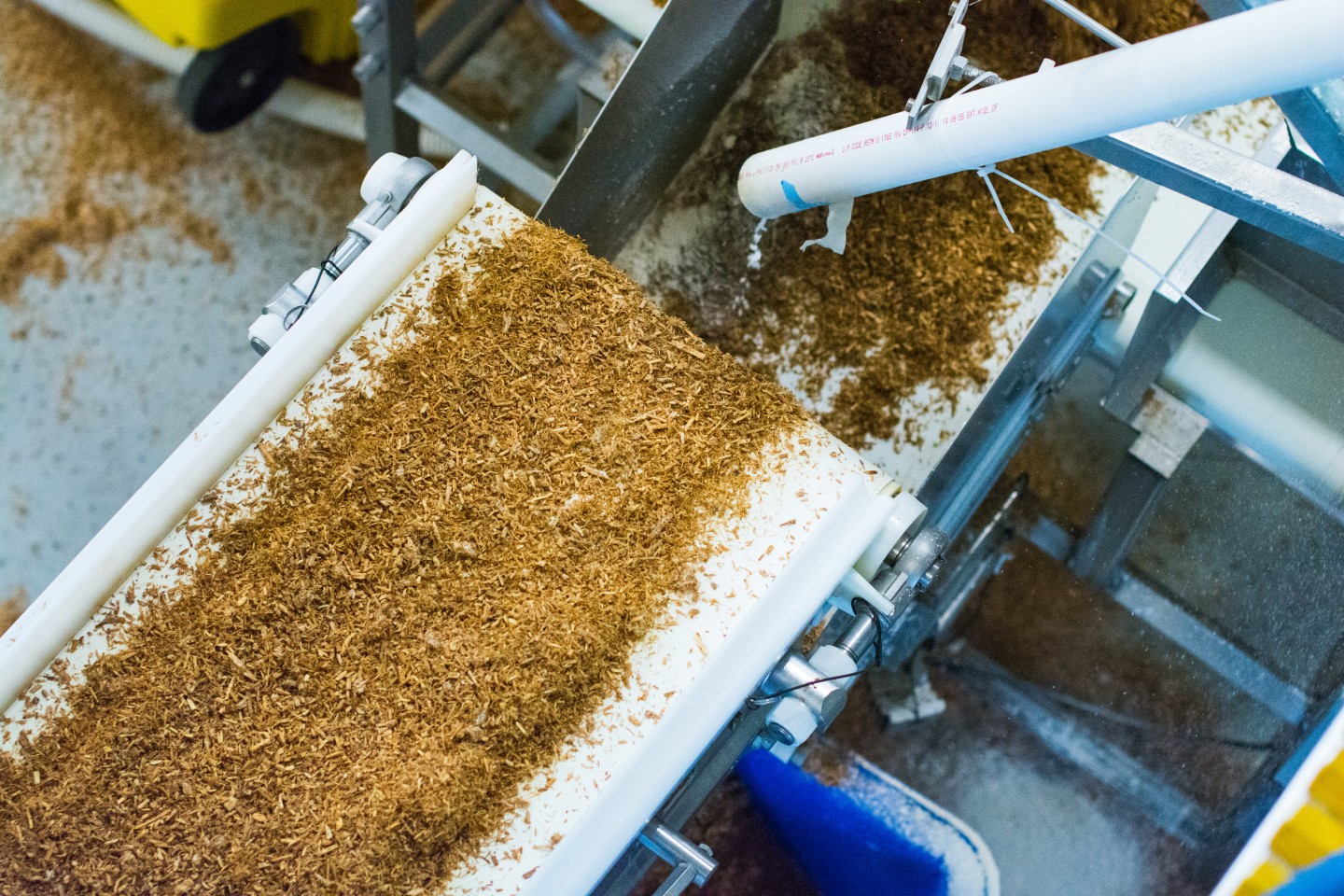
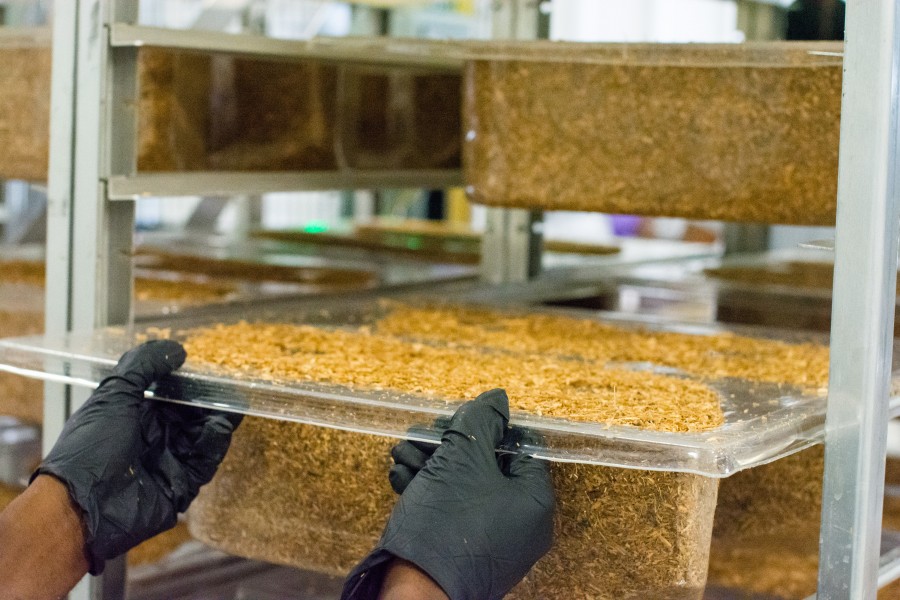
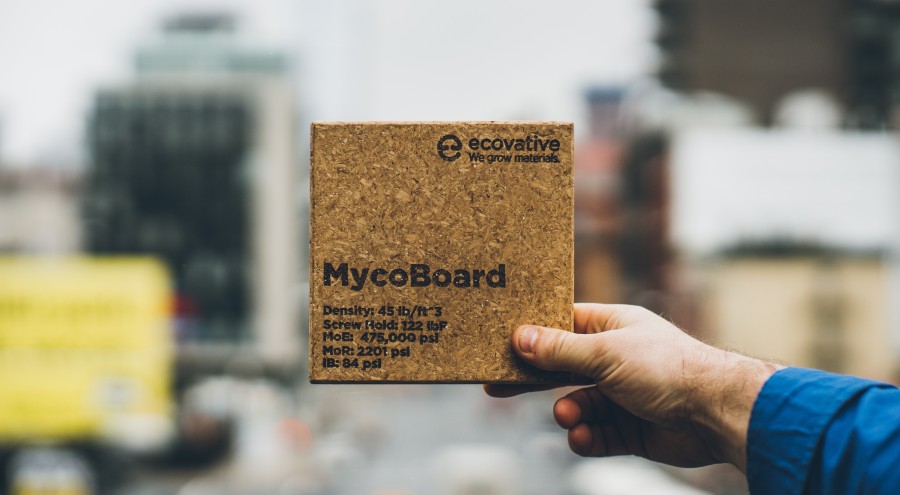
WE COULD GO ON AND ON about the many benefits of MycoBoard. (Did you know mushrooms also provide a natural flame retardant??!?) But, since we’re running out of space, let’s get down to it.
Unless you’re an architect or furniture maker à la Aden from SATC, you’re probably not in a place to support Ecovative. (You can, however, purchase a mushroom-made chair or boogie board.) What Bayer really wants is for you to ask — ask if products contain formaldehyde.
You can also order Ecovative’s GIY (Grow It Yourself) kit, pair it with a 3D-printed mold and grow just about anything — from a new desk to a bike. One bride even grew her wedding dress. Visit EcovativeDesign.com for a taste of the disruption.


